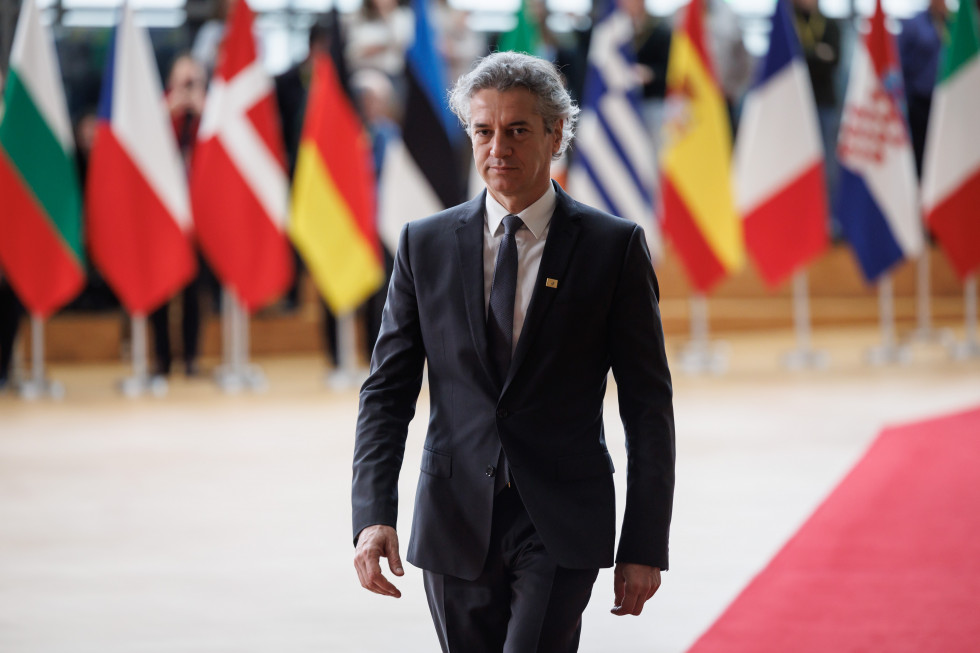Prime Minister Robert Golob at the meeting of the European Council

Prime Minister Robert Golob at the meeting of the European Council | Author Nebojša Tejić/STA
Today’s discussions focused on the war in Ukraine, competitiveness, the single market and the economy, and energy. As the Prime Minister pointed out before the start of the meeting, Slovenia welcomes the unity shown by the European Union on the issue of support for Ukraine. The Union is also starting to strengthen ammunition production alongside joint procurement of ammunition. “As military budgets are set to increase, it is right that this money is spent as locally as possible, i.e. in the Member States, also with a view to economic development,” the Prime Minister stressed. According to Golob, such production should be evenly distributed across the Union, and Slovenia should also participate in this process.
The EU Summit opened with a working lunch between the leaders and UN Secretary-General António Guterres. The Prime Minister thanked him for the UN’s efforts so far in finding a way forward for a just and lasting peace in Ukraine and welcomed the agreement on Ukrainian wheat exports.
In a debate on the competitiveness of the European economy and carbon-neutral technologies, Golob stressed the importance of joint investment in new technologies and that nuclear technology must also have its place in Europe’s carbon-neutral future. In the face of increasingly complex challenges such as climate and geopolitical change and labour shortages, an integrated approach is needed to boost growth. Building on recent European Commission documents, the European Council adopted recommendations to the European Commission and the Council to strengthen resilience and productivity, improve energy access, reduce strategic dependence, invest more in the skills of the future and prepare the EU’s economic, industrial and technological base for the green and digital transition, leaving no one behind.
In its recommendations, the European Council, also on the basis of Slovenia’s activities, paid special attention to small and medium-sized enterprises. With regard to the economy, leaders also held a strategic debate on the geopolitical aspects of trade and underlined the contribution of trade policy to EU competitiveness.
The leaders of the Member States and relevant EU institutions took note of the implementation of measures taken to address high energy prices, reduce gas demand, ensure energy security for the coming winter and phase out reliance on Russian fossil fuels. The European Council called on stakeholders to make full use of the joint purchasing mechanism through the EU Energy Platform to further improve the security of gas supply. In this context, Prime Minister Golob called on leaders to fill gas stores needed for next winter as soon as possible and to step up investment in the energy network.
The leaders also briefly touched on a few other topics. The Presidency of the Council and the European Commission reported on progress in implementing the conclusions of the February European Council on migration, with leaders calling for rapid progress in this area. Leaders also welcomed the agreement on an implementation annex to the agreement on the path to normalisation of relations between Kosovo and Serbia reached in the framework of the EU-facilitated dialogue and called on both sides to implement the commitments swiftly and in good faith.
Tomorrow’s Euro Summit will also be attended by the President of the ECB Christine Lagarde, and the President of the Eurogroup Paschal Donohoe. Leaders will discuss the current situation in the euro area and financial markets.

